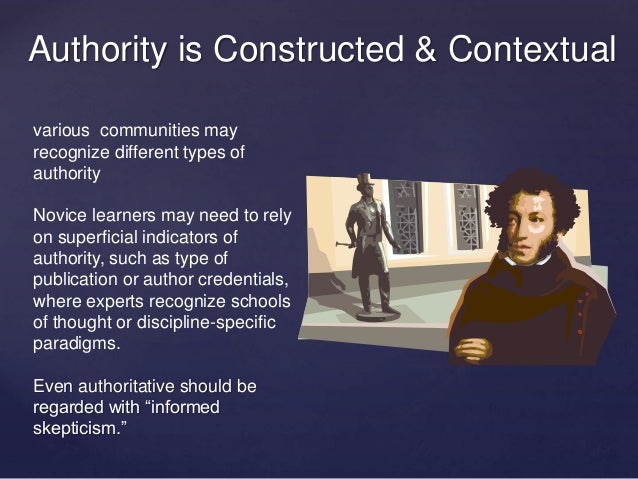Authority is Constructed and
Contextual

Authority
Is Constructed and Contextual refers to the recognition that information resources are
drawn from their creators’ expertise and credibility based on the information
need and the context in which the information will be used. Experts view
authority with an attitude of informed skepticism and an openness to new
perspectives, additional voices, and changes in schools of thought.
According to Mirela Djokic at the
Kwantlen Polytechnic University Information resources reflect their
creators’ expertise and credibility, and are evaluated based on the information
need and the context in which the information will be used. Authority is
constructed in that various communities may recognize different types of
authority. It is contextual in that the information need may help to determine
the level of authority required.
Topic: To investigate the life of the late President Nelson Mandela why is is an authoritative figure as being the Icon of the world
Activity
Student should be able to:
Ø Gather information on the late
President Nelson Mandela to find credible information
Ø They are required to find 3
different formats of materials on this topic and write a summary to present in
class.
Ø The students should conduct an
interview with his wives and also his fellow prison mates at Robben Island
Materials Needed
PC
Newspaper articles
Biography books
Youtube or podcast interview with his
wives for a view on his personal life
TV for programmes broadcast on his life
Visits of archives would also be
recommended
Knowledge Practice
Students should be able to define different types of
authority such as subject expertise (Scholarship), society position (public
office or title), or special experience (participating in an historic event)
They should be able to use makers of
authority, to determine the credibility of sources whether they should include all or part of the gathered information
Students should be able to identify
the authority and credibility of the article by the author and the full
citation that is given at the end of the article. They should also be able to distinguish whether they should or not include all the interview clips and this might be time consuming during their presentation which is only allowed in a stipulated time
Student must be able to differentiate between primary and
secondary sources, and also between popular articles and credible articles.


